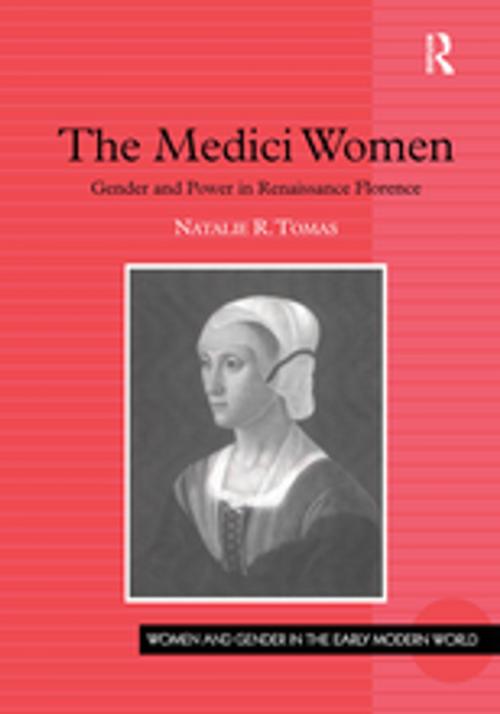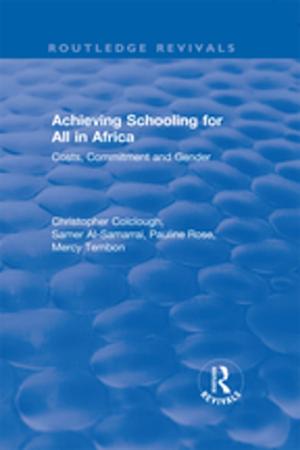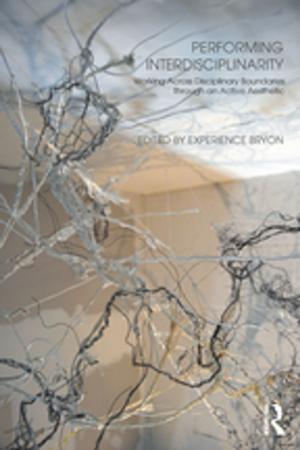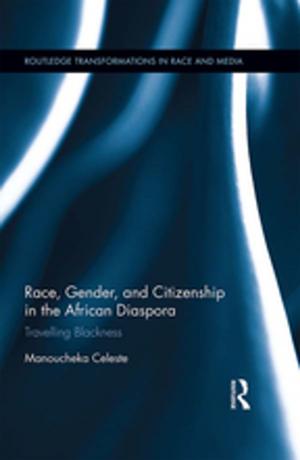| Author: | Natalie R. Tomas | ISBN: | 9781351885829 |
| Publisher: | Taylor and Francis | Publication: | July 5, 2017 |
| Imprint: | Routledge | Language: | English |
| Author: | Natalie R. Tomas |
| ISBN: | 9781351885829 |
| Publisher: | Taylor and Francis |
| Publication: | July 5, 2017 |
| Imprint: | Routledge |
| Language: | English |
The Medici Women is a study of the women of the famous Medici family of Florence in the fifteenth and early sixteenth centuries. Natalie Tomas examines critically the changing contribution of the women in the Medici family to the eventual success of the Medici regime and their exercise of power within it; and contributes to our historical understanding of how women were able to wield power in late medieval and early modern Italy and Europe. Tomas takes a feminist approach that examines the experience of the Medici women within a critical framework of gender analysis, rather than biography. Using the relationship between gender and power as a vantage point, she analyzes the Medici women's uses of power and influence over time. She also analyzes the varied contemporary reactions to and representation of that power, and the manner in which the women's actions in the political sphere changed over the course of the century between republican and ducal rule (1434-1537). The narrative focuses especially on how women were able to exercise power, the constraints placed upon them, and how their gender intersected with the exercise of power and influence. Keeping the historiography to a minimum and explaining all unfamiliar Italian terms, Tomas makes her narrative clear and accessible to non-specialists; thus The Medici Women appeals to scholars of women's studies across disciplines and geographical boundaries.
The Medici Women is a study of the women of the famous Medici family of Florence in the fifteenth and early sixteenth centuries. Natalie Tomas examines critically the changing contribution of the women in the Medici family to the eventual success of the Medici regime and their exercise of power within it; and contributes to our historical understanding of how women were able to wield power in late medieval and early modern Italy and Europe. Tomas takes a feminist approach that examines the experience of the Medici women within a critical framework of gender analysis, rather than biography. Using the relationship between gender and power as a vantage point, she analyzes the Medici women's uses of power and influence over time. She also analyzes the varied contemporary reactions to and representation of that power, and the manner in which the women's actions in the political sphere changed over the course of the century between republican and ducal rule (1434-1537). The narrative focuses especially on how women were able to exercise power, the constraints placed upon them, and how their gender intersected with the exercise of power and influence. Keeping the historiography to a minimum and explaining all unfamiliar Italian terms, Tomas makes her narrative clear and accessible to non-specialists; thus The Medici Women appeals to scholars of women's studies across disciplines and geographical boundaries.















